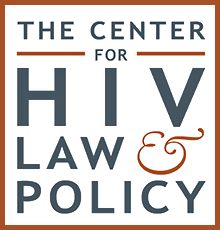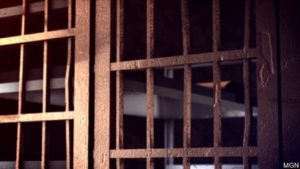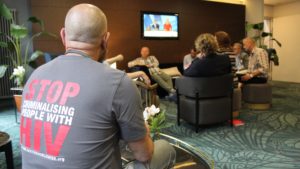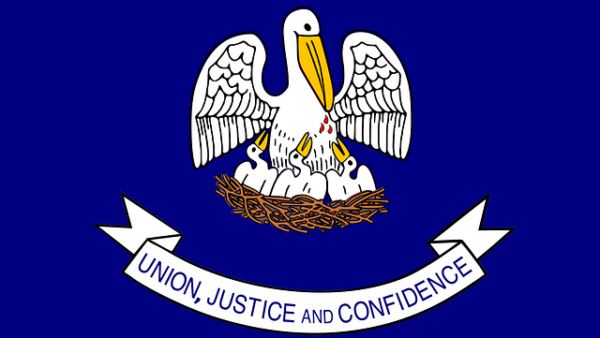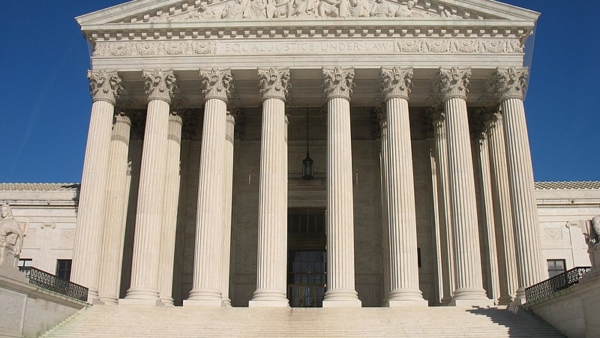Overview
In 1987, Louisiana adopted an HIV-specific law criminalising perceived ‘exposure’, which was partially amended in 2018. This law has been enforced many times against people living with HIV for a range of conduct. General laws can also be used to prosecute perceived HIV ‘exposure’.
The Penal Code contains the offence titled ‘intentional exposure to HIV’. This makes it a crime for anyone who is knowingly living with HIV to ‘intentionally expose’ someone to HIV through sexual contact, or through any other ‘means or contact’, without that person’s knowing consent. Despite the text of the law clearly requiring ‘intentional exposure’, the courts have held that intention to expose is not a required element of the offence. Contact has been interpreted broadly and there need not be any risk of transmission or evidence of transmission from the contact, and in fact cases have been prosecuted where there is no contact at all. This has been seen in a 2009 case in which a person was charged under the offence merely for allegedly agreeing to sex work with an undercover police officer, and in a 2020 case in which someone being arrested allegedly attempted to spit on a police officer.
The penalty for this offence is imprisonment for up to ten years and/or a fine, or if committed against a first responder, up to eleven years and an increased fine. There is also the possibility of hard labour being ordered, and courts have imposed this sentence several times. Those convicted of the ‘intentional exposure’ offence are also required to register as sex offenders. Several cases have occurred for HIV ‘exposure’ through sexual contact including as recently as 2020, as well as for other types of contact, such as spitting and biting.
In 2018, a bill was introduced with the intention to modernise the law, including by amending the provision to require a ‘specific intent to transmit’ HIV. However HB 275 met opposition within the legislature and this proposal was dropped. The sponsor of the Bill, Democratic Representative Edmond Jordan, neglected to engage with local civil society properly prior to drafting, and the resulting bill was seen as misguided by the Louisiana Coalition on Criminalization and Health, who advocated against it. The bill ultimately passed unanimously and was signed into law in May 2018. It made two main changes to the law: firstly it replaced language erroneously referring to AIDS with HIV, and it added an affirmative defence of disclosure in three circumstances:
-
- If the ‘exposed’ person knew the contact could result in infection and gave consent to that act anyway.
- If the transfer of bodily fluids, tissues, or organs occurred after advice from a licensed physician that the accused was not infectious.
- If the accused took practical means to prevent transmission as advised by a physician or healthcare provider following professionally accepted control procedures.
Although the addition of an affirmative defence is a positive, albeit minor step, this was a misguided attempt at reform as it makes the use of effective measures to prevent transmission, such as the use of condoms or adherence to medical treatment, conditional on the disclosure of status, which is not in itself an effective tool against transmission and is difficult to prove in individual cases.
As of November 2023, a Task Force to Study HIV Criminalization was established and began to meet to discuss possible revisions to the state’s HIV laws. In early 2024, a bill was introduced which would make further changes to the law, including renaming the provision to ‘intentional transmission of HIV’, limiting the law to conduct which involves a ‘substantial risk of transmission’ and which actually results in transmission (as opposed to mere ‘exposure’), requiring intent to transmit HIV, allowing full defences for preventative measures as well as disclosure, and reducing the penalties to a one year prison sentence and smaller fine. Following some debate, Representative Aimee Adatto Freeman pulled the bill in April 2024 for consideration at a later date.
A 2022 analysis of police data by the Williams Institute found that there had been at least 137 reports of alleged HIV-related offences in Louisiana since 2011. There were at least 47 separate convictions involving 43 people under the HIV law. The data shows a substantial overrepresentation of black people in arrest data. Despite the 2018 amendments to the law, the number of arrests has not reduced over time and enforcement remains high.
In addition to the HIV-specific law, general criminal laws have been used to prosecute perceived ‘exposure’ to HIV. This includes offences as severe as attempted second-degree murder, such as in a 1995 case in which a man allegedly inserted a syringe filled with clear liquid into the arm of a store clerk. Although it was never proven that the liquid contained HIV, he was found guilty and sentenced to 50 years’ imprisonment with hard labour. In another case in 1998, a doctor was given the same sentence for allegedly injecting an ex-lover with blood said to be carrying HIV and hepatitis C, although he was not personally living with HIV and the blood was taken from his patients. HIV status has also been considered an aggravating factor in sentencing for other offences.
The public health section of the Code also makes it an offence for any person living with a ‘venereal disease’, which does not specifically include HIV but falls within the definition provided, to ‘infect’ or ‘expose’ another. The same code gives health officials powers to compel examinations, isolation, or quarantine as deemed reasonable. Violation of these sections results in fines for the first and second instances, and fines or imprisonment up to six months for subsequent offences. The Administrative Code grants similar powers in the context of communicable diseases, and permits the release of HIV test results upon a court order.
For a detailed analysis of HIV criminalisation in Louisiana, as well as all other US states, see the Center for HIV Law and Policy report, HIV Criminalisation in the United States: a Sourcebook on State and Federal HIV Criminal Law and Practice.
Laws
Louisiana Statutes § 14.43.5
Intentional exposure to HIV
A. No person shall intentionally expose another to the human immunodeficiency virus (HIV) through sexual contact without the knowing and lawful consent of the victim, if at the time of the exposure the infected person knew he was HIV positive.
B. No person shall intentionally expose another to HIV through any means or contact without the knowing and lawful consent of the victim, if at the time of the exposure the infected person knew he was HIV positive.
C. No person shall intentionally expose a first responder to HIV through any means or contact without the knowing and lawful consent of the first responder when the offender knows at the time of the offense that he is HIV positive, and has reasonable grounds to believe the victim is a first responder acting in the performance of his duty.
D. For purposes of this Section, “first responder” includes a commissioned police officer, sheriff, deputy sheriff, marshal, deputy marshal, correctional officer, constable, wildlife enforcement agent, and probation and parole officer, any licensed emergency medical services practitioner as defined by R.S. 40:1131, and any firefighter regularly employed by a fire department of any municipality, parish, or fire protection district of the state or any volunteer firefighter of the state.
E. (1) Whoever commits the crime of intentional exposure to HIV shall be fined not more than five thousand dollars, imprisoned with or without hard labor for not more than ten years, or both.
(2) Whoever commits the crime of intentional exposure to HIV against a first responder shall be fined not more than six thousand dollars, imprisoned with or without hard labor for not more than eleven years, or both.
F. (1) It is an affirmative defense, if proven by a preponderance of the evidence, that the person exposed to HIV knew the infected person was infected with HIV, knew the action could result in infection with HIV, and gave consent to the action with that knowledge.
(2) It is also an affirmative defense that the transfer of bodily fluid, tissue, or organs occurred after advice from a licensed physician that the accused was noninfectious, and the accused disclosed his HIV-positive status to the victim.
(3) It is also an affirmative defense that the HIV-positive person disclosed his HIV-positive status to the victim, and took practical means to prevent transmission as advised by a physician or other healthcare provider or is a healthcare provider who was following professionally accepted infection control procedures.
Louisiana Statutes § 40.1121.2
Infection of others prohibited
It is unlawful for any person to inoculate or infect another person in any manner with a venereal disease or to do any act which will expose another to inoculation or infection with a venereal disease.
Louisiana Statutes
§ 14:27 Attempt
A. Any person who, having a specific intent to commit a crime, does or omits an act for the purpose of and tending directly toward the accomplishing of his object is guilty of an attempt to commit the offense intended; and it shall be immaterial whether, under the circumstances, he would have actually accomplished his purpose.
(…)
D. Whoever attempts to commit any crime shall be punished as follows:
(1)(a) If the offense so attempted is punishable by death or life imprisonment, he shall be imprisoned at hard labor for not less than ten nor more than fifty years without benefit of parole, probation, or suspension of sentence (…)
§ 14:30.1 Second degree murder
A. Second degree murder is the killing of a human being:
(1) When the offender has a specific intent to kill or to inflict great bodily harm; or
(…)
B. Whoever commits the crime of second degree murder shall be punished by life imprisonment at hard labor without benefit of parole, probation, or suspension of sentence.
Further resources
Not all laws used to prosecute people living with HIV in this state are included on this page. For a comprehensive overview and analysis of HIV-related criminal and similar laws and policies, visit The Center for HIV Law and Policy
Using data obtained from the Louisiana Incident-Based Reporting System and from the state’s most populous parishes, this study examines the enforcement of HIV criminalization laws in Louisiana since 2011.
